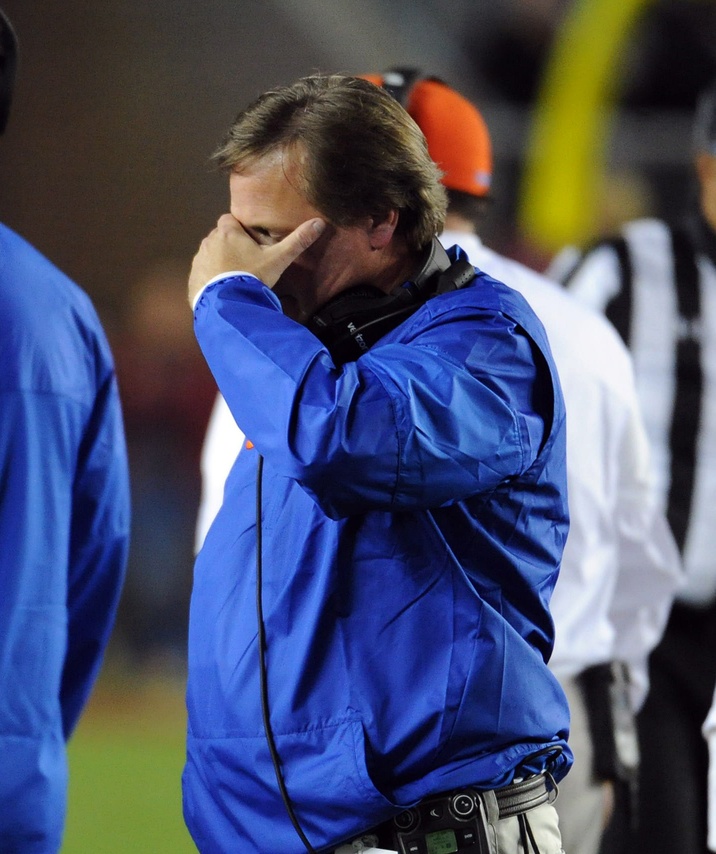
Injuries mattered, but loss to FSU is on Florida coaches
By Andrew Olson
Published:
One common storyline of Florida’s miserable 31-13 loss at FSU was that injuries caught up to the defense. The Gators entered the game without five starters on defense and saw three more go down during the game. The truth is, if all eight had been completely healthy it wouldn’t have mattered. The UF offense was zero help to the defense, and the coaches deserve the blame.
For one drive, the opening possession, the Gators had life on offense. With a nine-play mix of running and passing, Florida marched from its 25-yard line to the FSU 2. On 4th-and-goal, coach Jim McElwain rolled the dice and tried for an early touchdown to set the tone, but came away empty handed. It was the closest Florida’s offense came to scoring a touchdown.
In a young tradition that predates the McElwain era, the Gators were hamstrung by their quarterback. Much like Skyler Mornhinweg and Treon Harris in the past three years, Austin Appleby stood no chance against the Seminoles’ defense. FSU sacked Appleby six times, hurried him three more times and forced a pair of fumbles on the graduate transfer who went 19-of-35 passing for 149 yards.

For reasons known only to McElwain and play-caller Doug Nussmeier, Jordan Scarlett’s carries went down against Florida State (14 rushes, 53 yards) one week after playing a key role in the Gators’ 16-10 win at LSU, when he ran 22 times for 108 yards on the SEC’s No. 2 rushing defense.
On the surface, Scarlett’s lack of touches might not seem like a big deal. The sophomore running back averaged only 3.8 yards per carry with a long of 13 yards – not exactly a stat line that screams game-changing. There’s no guarantee that more carries would have led to a different outcome, but season stats show that his production trends upward with more opportunities.
Since Florida came off its Week 8 bye, the Gators have gone 3-2. It’s notably the point of the season in which McElwain switched from a four-headed monster approach at running back to a one-two punch of Scarlett and Lamical Perine.
In UF’s three wins, Scarlett carried the ball 68 times for 335 yards (4.9 yards per carry). In the two losses, Scarlett logged only 19 rushes for 68 yards (3.6 yards per carry). When the Gators don’t run the ball, the passing game also suffers.
In the two post-bye losses, Florida’s quarterbacks completed 53 percent of their passes (38-of-72), averaged 189 yards passing and accounted for four turnovers (2 interceptions by Luke Del Rio, 2 fumbles by Appleby) with zero touchdowns.
Things aren’t going to get any easier in the SEC Championship Game rematch against Alabama, which has the No. 1 scoring defense, rushing defense and total defense in the country.
“It’s going to be a heck of a test. I’m concerned,” McElwain told reporters after the FSU game. “These guys have been though a ton. They played their tails off today. And it hurts. As a competitor, you tear off the rearview mirror and you go forward. Our team will be ready.”
Florida might not want to rip the rearview mirror off completely. The past five games clearly show that the key to Florida’s success on offense is building the game plan around handing the ball to Scarlett.
Andrew writes about sports to fund his love of live music and collection of concert posters. He strongly endorses the Hall of Fame campaigns of Fred Taylor and Andruw Jones.






